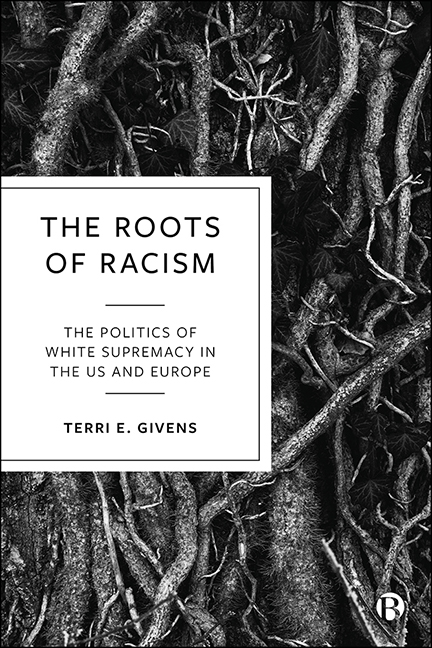Book contents
- Frontmatter
- Dedication
- Contents
- Preface
- 1 Introduction: Structural Racism is the Problem of the 21st Century
- 2 Political Science, International Relations, and the Normalization of White Supremacy
- 3 The Social and Geographical Construction of Race: A Transatlantic History
- 4 Ties that Bind: Slavery and Colonialism
- 5 Post-War Transitions: The Conflation of Immigration and Race
- 6 Immigration, Race, and Citizenship
- 7 From the Civil Rights Movement to Black Lives Matter
- 8 Party Politics, the Radical Right, and Race in the 21st Century
- 9 Elections, Protest, and Insurrection
- 10 Conclusion: Finding a Path Forward
- References
- Index
2 - Political Science, International Relations, and the Normalization of White Supremacy
Published online by Cambridge University Press: 15 September 2022
- Frontmatter
- Dedication
- Contents
- Preface
- 1 Introduction: Structural Racism is the Problem of the 21st Century
- 2 Political Science, International Relations, and the Normalization of White Supremacy
- 3 The Social and Geographical Construction of Race: A Transatlantic History
- 4 Ties that Bind: Slavery and Colonialism
- 5 Post-War Transitions: The Conflation of Immigration and Race
- 6 Immigration, Race, and Citizenship
- 7 From the Civil Rights Movement to Black Lives Matter
- 8 Party Politics, the Radical Right, and Race in the 21st Century
- 9 Elections, Protest, and Insurrection
- 10 Conclusion: Finding a Path Forward
- References
- Index
Summary
The discipline of political science should be uniquely placed to understand the role of racism in politics and policy. However, the history of the discipline indicates that the study of racism and discrimination has been marginalized, despite the centrality of race in politics and societal relations. In this chapter, I examine more closely the history of political science and race since the discipline was founded in the late 1800s. The way that race has been handled in my own discipline provides lessons for other disciplines, particularly those in the social sciences, but it is also an indicator of how society has dealt with issues of race over time. We are entering an era of greater awareness of the role of racism in the development of policy and politics, and it is clear that the lack of diversity in political science has had a major impact on the types of research that have been done over time and in many ways the quality of that research was impacted by the lack of taking into account racial biases.
The discipline of political science has been a latecomer to the study of race and politics. Other fields, including sociology, have been engaged in examining race issues since at least the 1950s. What is curious is that the study of race was an important component in the founding of the discipline, as I will examine in the next section of this chapter. Then race disappeared from the agenda beginning in the 1920s through the 1960s. An examination of that time period indicates that the lack of focus on race had to do with our ahistorical approaches that didn't take into consideration long-standing structures that came out of the eras of slavery and Jim Crow.
Sociology had W.E.B. DuBois as one of its founders who put Black America at the center of his research beginning in the late 1800s. Many scholars have focused on the role of DuBois, and how he was erased from the discipline of sociology, as explained by Saint-Arnaud and Feldman:
Consider Du Bois's accomplishment: far from lagging behind the social science of his time, he anticipated methods and practices still two decades in the future with his detailed 1899 empirical study The Philadelphia Negro;
- Type
- Chapter
- Information
- The Roots of RacismThe Politics of White Supremacy in the US and Europe, pp. 16 - 30Publisher: Bristol University PressPrint publication year: 2022

